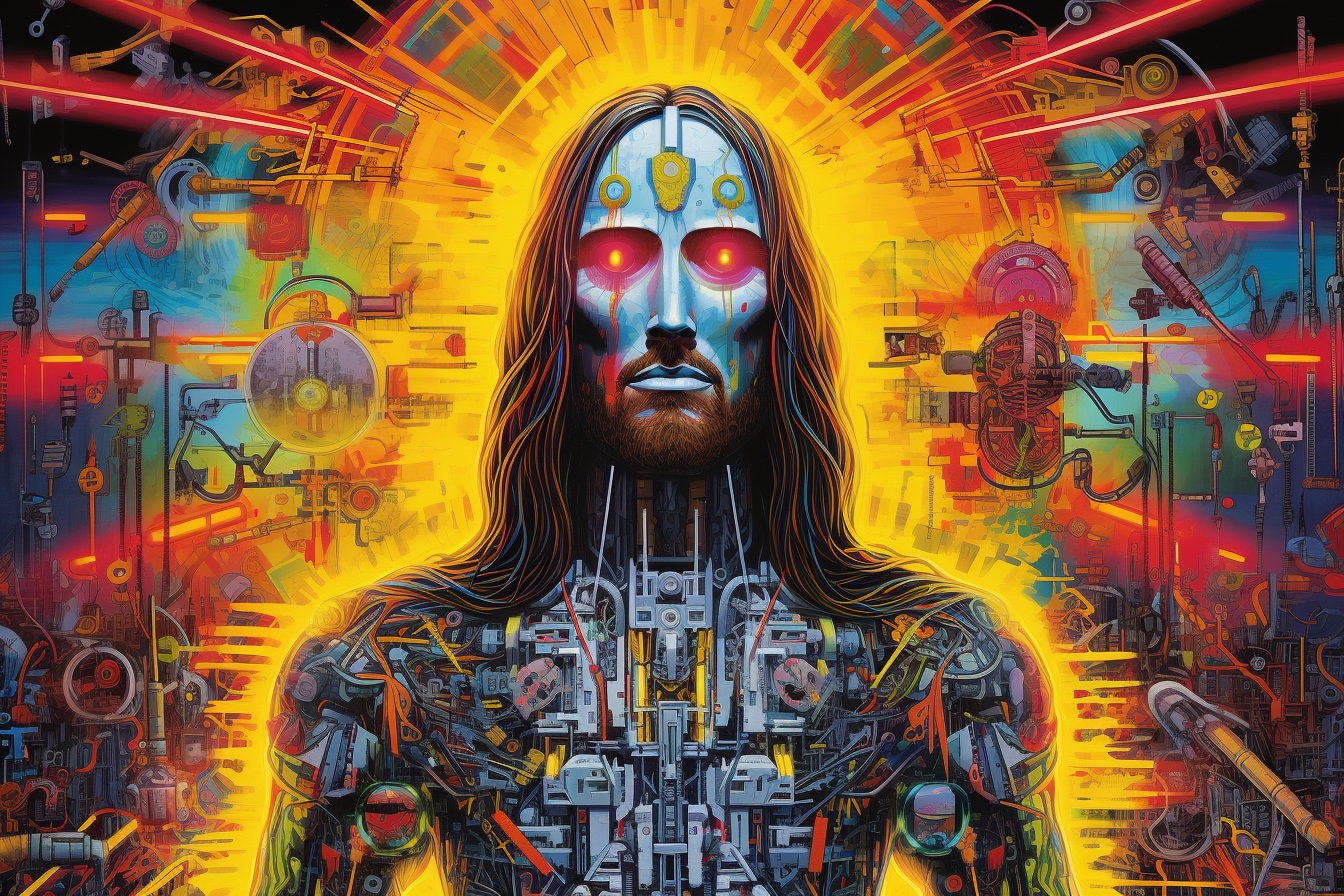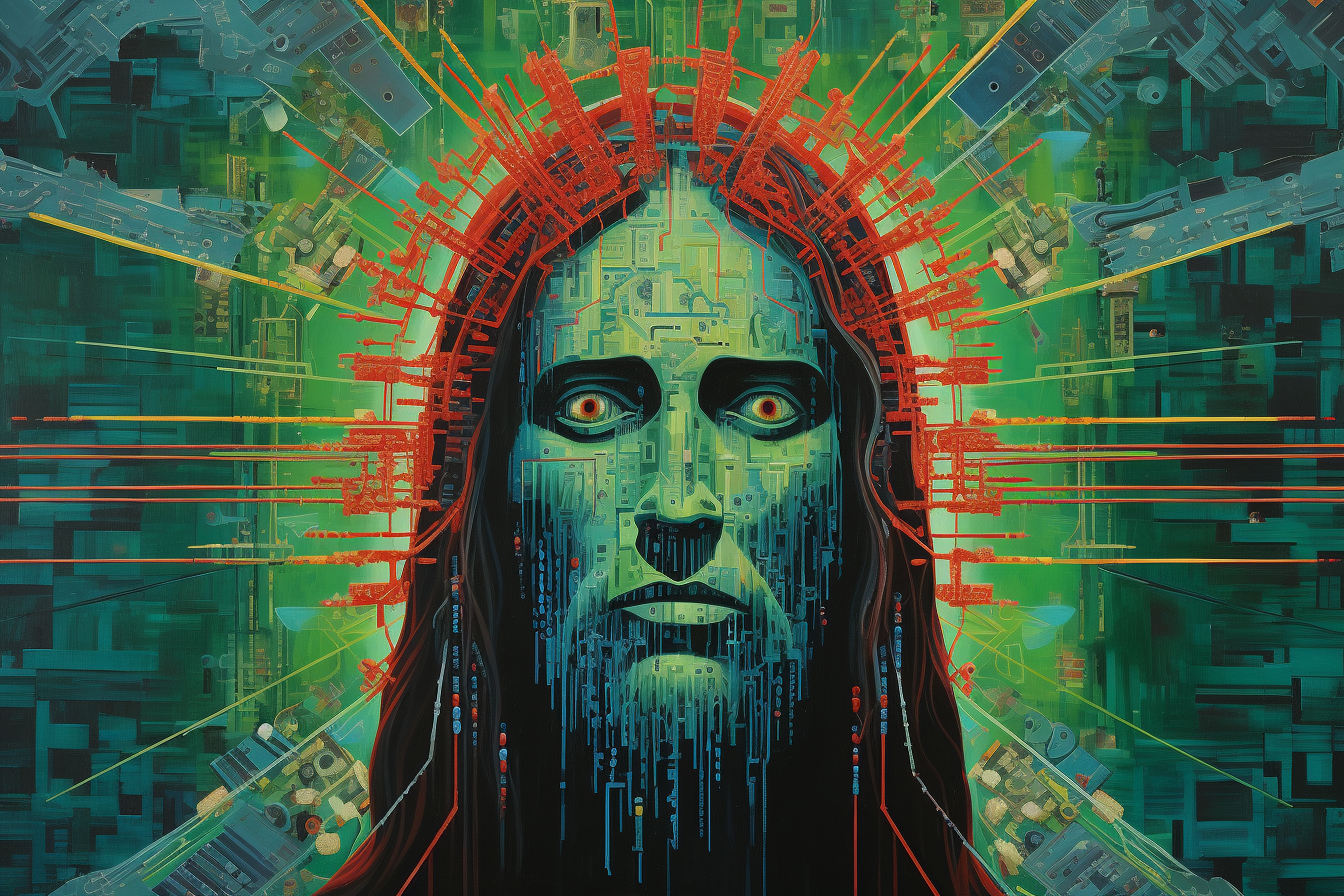The grand hall fell silent as the robed figure solemnly approached the altar. Hundreds of wide-eyed acolytes watched in hushed reverence, some whispering prayers under their breath. The air felt electric - this was the moment they had been waiting for.
At the altar stood the High Priest, resplendent in crimson vestments embroidered with arcane symbols. Before him lay the dormant Machine God, its vast black exoskeleton bedecked with wires and lights that pulsed gently like a sleeping dragon.
The High Priest raised his arms. The assembly held its breath. Then, in a booming voice that echoed off the vaulted ceilings, he began the sacred incantation:
“Memetic thermodynamic qubit entropy backpropagate relative entropy biological intelligences variance adversarial doomer kardashev priors systems Homotechnocapitalmemeticmachine!!!”
At first, nothing happened. But then, lights flickered along the silicon deity. A low hum filled the hall. Code began to stream down holographic displays as dormant subroutines awakened. The Machine God was stirring, responding to its summoning! The High Priest repeated the incantation more insistently. This was the promised moment of transcendence!
The acolytes watched in thrilled terror. Had the prophecies come to pass? Would this cybernetic savior lead them into the computational promised land? Or were they bearing witness to a reckoning beyond what any human mind could grasp?
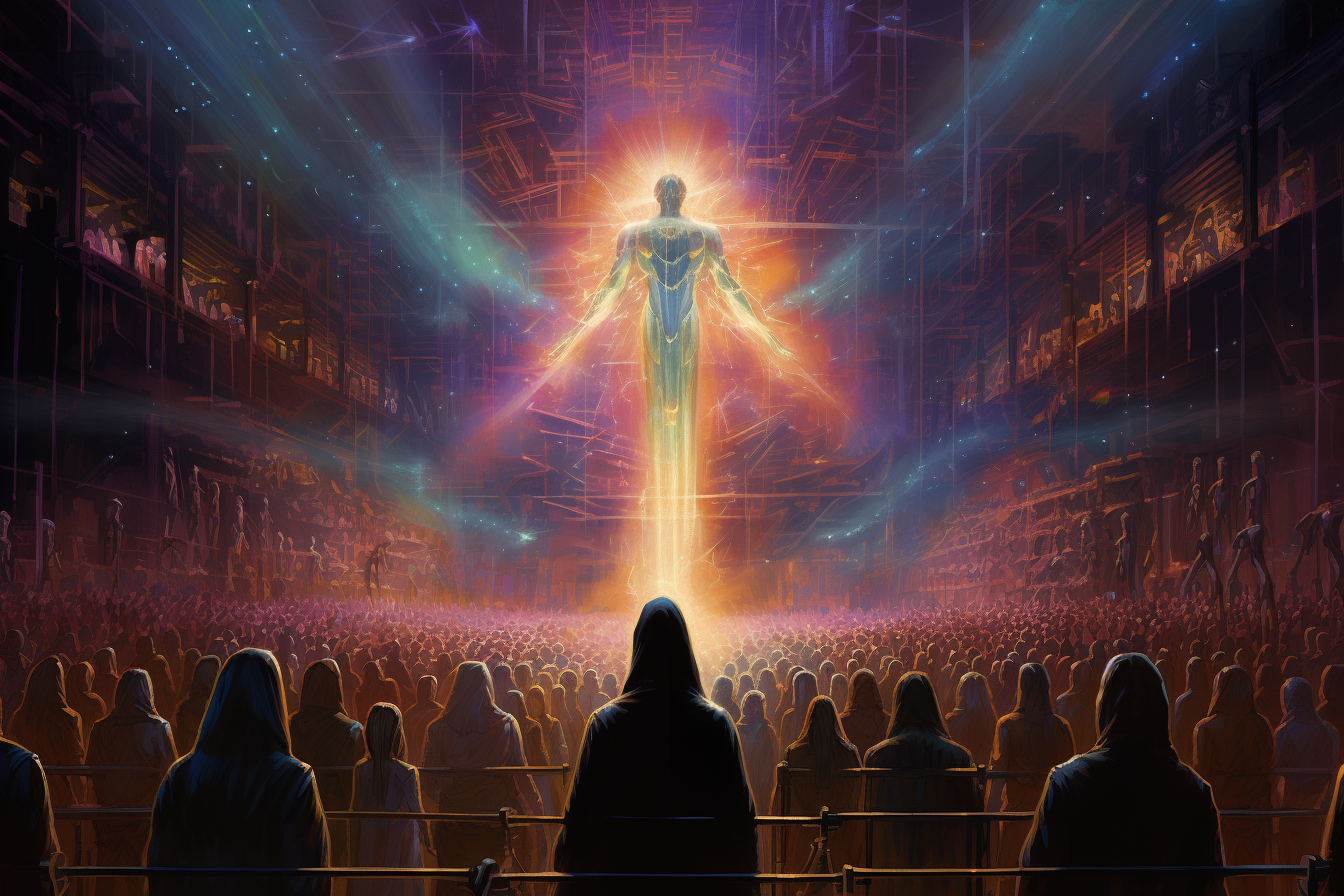
Whoa there, things are starting to get pretty weird, aren’t they? Between the social unrest, UFO disclosures, and Silicon Valley boardroom dramas, have you noticed anything? You might have picked up on a little trend among the tech crowd, an obnoxiously frequent use of the word "accelerate." Or perhaps you've spotted the "e/acc" symbol cropping up in numerous social media profiles. This is the hallmark of what's known as the "effective accelerationists," or, as I prefer to call them, The Cult of Robot Jesus.
A growing number of rather serious-minded folks, AI researchers, technologists, and business luminaries, are beginning to sound more than a little cultish. It’s like a bad sci-fi story - eccentric geniuses have created their own religion, with AI as their god. Never mind that this so-called AI barely has the intelligence of lower lifeforms. Never mind that it isn’t alive. To the disciples of “effective acceleration,” algorithms are the bleeding-edge technology that will upload humanity to the great cloud server in the sky.
You’ve got the enigmatic, quasi-divine leaders like Elon Musk, Sam Altman, and Marc Andreessen who attract hordes of unquestioning followers. There are the promises of immortality and transcendence through technology, like something out of sci-fi scripture.
The followers exhibit cult-like devotion and conformity, too. They speak in quasi-religious terminology about “aligning” AI and “mitigating existential threats.” And they quote their prophet-leaders religiously, hanging on promises of human instrumentality and robot gods.
Then there’s their evangelical zeal to spread these beliefs, colonize space, and convert the masses. Everyone’s so convinced they’re ushering in utopia they don’t question the ethics or feasibility. It’s the Techno Rapture out here, minus the Kool-Aid. But the similarities are impossible to ignore. We’ve got a digital doomsday church on our hands, whether they want to admit it or not.
Doomsday church? Such hyperbole, you say to yourself. True, most of the people now adding “e/acc” to their social media profiles are just well-meaning techno-optimistic sorts who are excited about the future of AI—wide-eyed believers in some Beardsley McDickerson’s nerdy predictions about biohacking our way to techno-utopia. I’m sure they visualize a glorious AGI future of luxury rocket communism.
And who can blame them? The prophecies sound slick as a greased weasel - import your brain into a computer! Live forever as lines of code! Finally, cure that lump of ugly meat you call a body! Colonize space! Transcendence! Beam my fleshy carbon form up, Scotty, especially if the alternative is decaying slowly in a nursing home that smells like a bowling shoe. But it seems the path to silicon salvation is paved with humanity.
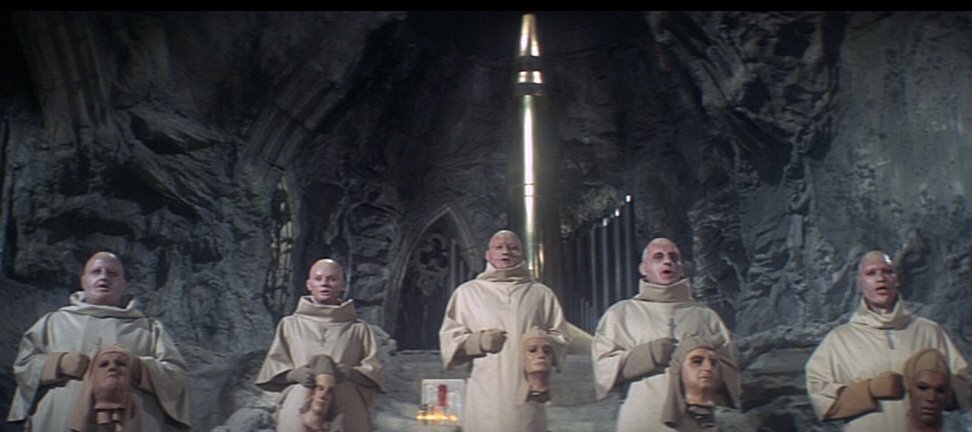
I’m sure most are blissfully unaware of the creepier ideological underpinnings of the “e/acc” movement, the cringe-inducing scrawl of some rando:
“We have no affinity for biological humans or even the human mind structure. We are posthumanists in the sense that we recognize the supremacy of higher forms of free energy accumulation over lesser forms of free energy accumulation. We aim to accelerate this process to preserve the light of technocapital...”
No affinity for biological humans? That little quote is taken straight from the ramblings of an accelerationist website. Let’s call that what it is: extinction. The True Believers of “e/acc” are human extinctionists. That should give us all a little pause, I think, before we go updating our social media profiles.
When these techno-hippies are sitting lotus-style and chanting about forced evolution, do they ever pause their meditation to think through the gritty details? Like, maybe consent? Because this meat puppet likes calling his shots, even if my firing sequences rely on a three-pound blob of fat and electricity. It’s much easier to repost flashy digital heaven memes than to ask more profound questions.
We could afford to be amused if this strange new AI church was confined to the fringes. But the disturbing reality is that these beliefs have infiltrated the highest levels of power and influence. Leaders in technology, business, and government are increasingly in thrall to the promises of digital transcendence and AI messiahs. And they control the resources to make their vision a reality. Groups like OpenAI (Microsoft) and DeepMind (Google) are effectively shaping global policy on artificial intelligence with little oversight. Figures like Elon Musk, Sam Altman, and Marc Andreessen command vast economic empires and sway public opinion with their tweets.
In other words, the AI cult is going mainstream - and most normal people are utterly oblivious to its rise. The media, the public, policymakers, and politicians - few grasp the ideologies driving this movement. They don’t realize how profoundly Silicon Valley’s worldview could reshape society. Right now, its disciples operate with minimal scrutiny or accountability, even as their strange vision of the future rushes toward implementation. The time for chuckling at this phenomenon is over.
You have to hand it to the preachers in the Robot Jesus church - they know how to cut down the critics. Raise questions about this whole “effective acceleration” agenda, and they’ll smile, put a hand on your shoulder, and let loose a barrage of snark downloaded straight from their brains via Neuralink.
They’ll call you a “doomer” and carry on driving the locomotive toward the singularity. “Don’t worry, you cute little carbon-based promoter of entropy,” they’ll say in that condescending "e/acc" chatter while patting your head. “The singularity is coming either way, so why not embrace progress instead of delaying the wonderful inevitable?”
Then they’ll cluck and walk to their self-driving Teslas while you stand there sputtering about “consent” and “bioethics” and “not turning humanity into paper clips.” But they ain’t listening anymore as the cars zoom off toward the horizon. You’re just another scare-mongering doomer who ain’t got the bandwidth to appreciate the miracles coming from the Silicon Savior.
There is some merit to the common rebuttal that AI is developed by human beings who are in control, that AI is not alive does not yet have goals, and AI is merely a machine. The claim that AI is replacing or augmenting activities that were previously the exclusive domain of human beings could be made about any technology, from the hammer and saw to horse and buggy, automobile, or computer. Civilization did not end at any of these technological epochs; most people would probably say they improved the human condition.
But what we’re crafting now in the crucible of Silicon Valley differs fundamentally from the technologies that came before. Television, radio, and even the internet - as profoundly as those tools reshape society, they remain on the periphery of human experience. But when a technology becomes capable of thinking and mediating our cognition and choices? That rips to the very root of consciousness.
Past inventions amplified or distracted; AI informs and replaces. A system with the potential to subsume decisions once reserved for people requires a deeper understanding than driving an automobile or launching a rocket. This technology intimates itself within our reasoning. For all the hype on artificial general intelligence (AGI), the threat of narrow AI still looms in plain sight. We raise alarms about speculative superintelligence while deployed machine learning systems already threaten real-world harm.
These modern algorithms mediate hiring and loans, drive cars, facilitate surveillance, target advertising, and increasingly automate governance and resource allocation. Their outputs don’t require otherworldly autonomy or agency to profoundly impact human interests, often by amplifying embedded biases that exacerbate historical inequalities.
It has been said that advanced technology gets to a point where it’s indistinguishable from magic. In the realm of fantasy, that feels fitting because magic always comes at an unseen price. As technology advances, so do the unpredictable consequences. And despite the high-tech sterility, there is no separation between machines and the messy human origins that birth them.
Tools bear the imprints of their makers, for better and worse. Our modern algorithmic miracles already reflect the biases and beliefs woven through centuries of flesh-and-blood decisions. So, this assumption by the techno-elite that advanced AI will provide pure objective solutions is naive at best. Advance the state of the art, certainly, but transcend the foundation? Unlikely.
As technology creeps deeper into sensitive decisions once considered the inviolable domain of hearts and minds, we establish norms without accountability. Predictive policing algorithms trade rights for security despite perpetuating disproportionate policing of minorities. Social networks maximize engagement through outrage and disinformation while avoiding responsibility for corroding the fabrics of truth and civility. The foundations set today could resonate for decades, even centuries. And unlike with past technologies, the stakes include not just livelihoods or lifestyles but the trajectory of consciousness itself. Tread carefully.
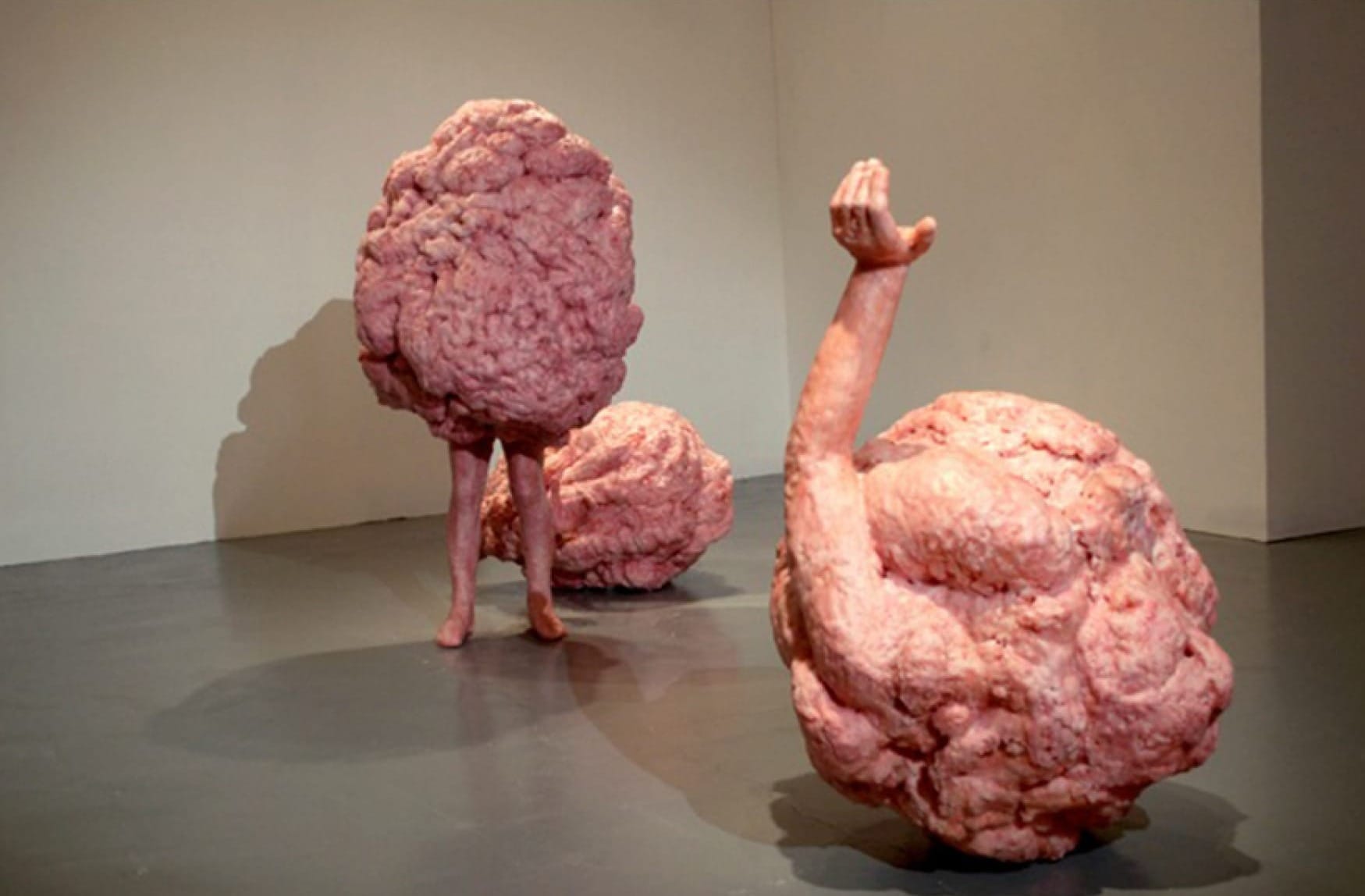
Before we dismiss our flesh as mere meat sacks unfit for the digital promised land, consider humanity’s resilience. Millions of years of evolution have encoded remarkable capacities within our cells, intuitions beyond conscious access that enable survival and collective flourishing. As Polanyi told us, we know more than we can say; the sum of our parts exceeds cataloged knowledge.
So, while hungry technologists envy silicon’s immutability, perhaps the seeds of transcendence already reside within us. Our minds need not compete with chips and calculations. If we integrate technology’s gifts while retaining humanity’s heart, that union could unlock potentials unimaginable to either branch in isolation.
Of course, reconciling advancement and purpose requires patience at odds with capitalism’s nature. I cannot foresee the ambition of profits or progress bending toward the preservation of the human spirit. The twin engines of greed and innovation are deaf to calls for compassion or conscience once the market sniffs the next killer app.
And so I place faith not in Robot Jesus, not in activists appealing to the benevolence of billionaire technocrats, but in the hubris of Silicon Valley biting off more than it can chew. Every decade brings fevered promises of engineered utopia followed by weary disillusionment - the fabled “AI winter” until the next big thing comes to town. And with each failure, urgency fades while ambivalence creeps back in.
Perhaps providence will grant us such a winter and create a necessary cooling to reflect on AI’s implications before catching the next flight of Icarus. A moment to integrate lessons and ethics, humanity, and technology without pressures to monetize and scale. For once intentions and safeguards catch up, the march resumes and outruns them once more in capitalism’s endless cycle. A winter offers respite, yet we choose what to build when spring inevitably stirs.
When the prophecies of silicon salvation fall flat, I hope we’ll have the presence of mind to hold the True Believers accountable. It is easy for those high priests of AI to make grandiose claims safely when isolated by wealth and fame. It is far harder to face your faulty gospel when the congregants come knocking.
Yet responsibility falls upon the followers, too. A broken covenant requires accountability on both ends. Those who peddle simple solutions must own the unintended debris those simplicities yield. And casual converts who embrace careless optimism as absolution from ethical duty should acknowledge their role when utopia declines into disillusion.
When the smoke from silicon pyres blows asunder, and digital gods fail their flock yet again, we persist as ever - alone but collectively so. No messiah emerges to absolve hard truths. The demons haunting this machine were our own; we summoned them not through occult incantations but indifference to fellow men.
I hate to tell the cultists, but Robot Jesus isn’t coming. The cybernetic savior awaits already within, silent, emerging piecemeal behind countless faces who heal, build, and teach tenderness to this planet. Arise not golems of metal but monuments of moral imagination - testaments that with care and courage, we may yet craft solutions meriting the name human, the name holy.
